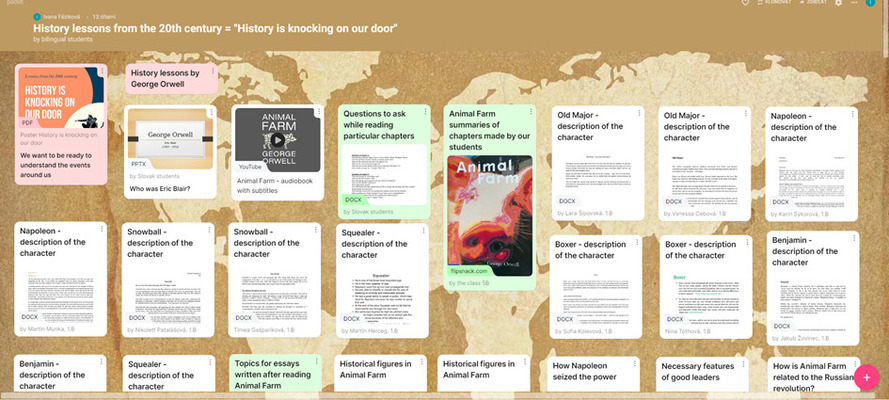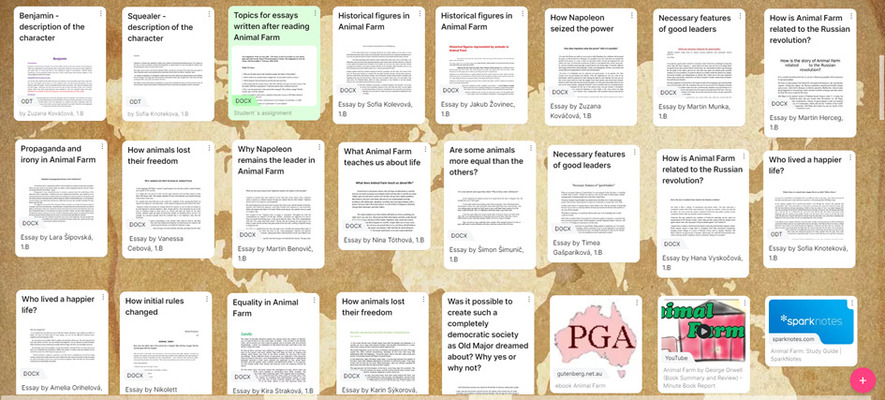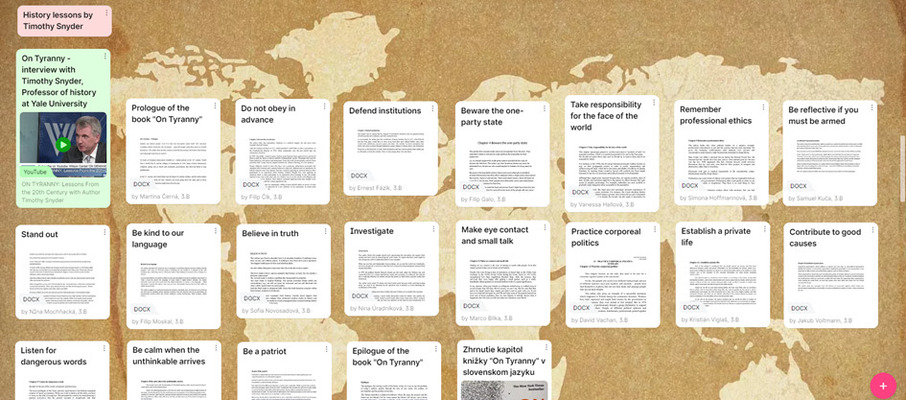We are all concerned about the situation around us these days. Our societies are polarised in very bad ways. We are facing enormous waves of disinformation and brainwashing.
Some people do not know if they could believe in the institutions in their countries. Some people already do not believe into anything, they are not able to make some authentic decisions because they do not believe facts exist, they only have opinions but based on someone´s else opinions. And we fail to verify their opinions.
There are even talks about a war possibility between Ukraine and Russia. Ukraine is a neighbouring state of Slovakia and Poland, too.
We feel that it is very important to learn history, listen carefully to history lessons from our past and learn from people whose experiences are the sources of trustworthy knowledge.
At the beginning we chose George Orwell (as a person of the 20th century whose works are still very influential) and Timothy Snyder (as a person of the 21th century who teaches history at Yale university) to teach us valuable lessons.
We were studying their masterpieces: "Animal Farm" by George Orwell and "On Tyranny" by Timothy Snyder and asking questions like:
Can we develop a real society based on equality where everybody would be respected and nobody would be priviliged at the expense of the others?
Is it possible to prevent abusing the political power?
How can we support institutions necessary for building democracy?
We summarised our materials, products and inspirational ideas in the padlet:
https://padlet.com/ivanafazikovagymhc/8hs8a5xvxxhskjlj



Students from Zabór, Poland, decided to join the discussion about "Animal farm" by George Orwell. They created a shortened version of the story, which can be used with younger students:
Animal farm by George Orwell.docx
Then, they discussed the story and its main characters. They used the following questions:
1. What is the story about?
2. How can you describe Napoleon, Snowball, Squealer, Boxer? (name the features)
3. Do you think the story is more satiric or real? Why?
4. Do you think the animals’ life will change now? Why / Why not?
The story was a starting point to the discussion about state systems and their impact on citizens. We used this worksheet:
STATE SYSTEMS.docx
The final discussion was focused around these questions:
- What effect does power have on people?
- Which state systems are citizen-friendly and which of them are not?
- Why is it so important to participate actively in public life?
We encourage everyone to watch the full version of an old cartoon "Animal farm":
We collected student opinions about a more livable world on a blog page.
https://bit.ly/3tWSdIr